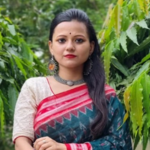Course Information
- 2023-24
- CDS213
- 5-Year B.A., LL.B. (Hons.), LL.M., Master's Programme in Public Policy
- III, IV, V
- Nov 2023
- Elective Course
How does this course relate to the programme curriculum: Does it develop on a prior course in the programme or is it a foundational or standalone course?
In an ever-changing ‘landscape of care’ and co-emergent processes of a globalized world, questions on arranging, managing and thinking of life, its consequences for the older population calls for perusal. Individuals live their life and grow old in a social context. From high-income to middle-income countries, increase in longevity means there is a shift from death spurred by acute illness to the current state of prolonged life of chronic illness and medicalization. This as some scholars observe is the rectangularization of the curve. Longer life span, empty nest syndrome, ageism versus gerontocracy, disengagement versus continuities in ageing, third age as a new category of consumers, later-life planning for end-of-life patients and the conceptualization of ‘ageing’ in the lifecourse are critical to understand the relationship between age, ageing and policy.
Ageing, Lifecourse and Death is intended to be a standalone and foundational course to fill the dearth of a comprehensive course on ‘age’, ‘ageing’ and ‘senescence’ from a socio-anthropological perspective to broadly enquire ‘what it means to age’ in a changing world?’ The course will establish connections between individual biographies and the wider historical and socioeconomic contexts in which they unfold and highlight linkages between early-life experiences and later-life well-being. Because the persistence or diminishment of health is central to the experience of aging, there will be an emphasis on the distribution of health and illness among older adults. The course will unpack the impacts of individual behaviours and health services but primarily examining the social determinants of health in later life and the consequences of population aging for societies.
Describe how you have approached the course. What have you included/excluded and why? Choice of materials: primary or secondary readings / case law;
Keeping in mind it is a foundational and a standalone course, emphasis will be on introducing students to the theoretical framework, methodological paradigms, latest research paramount to South Asia, approaches and trends in South Asia, and a cross-cultural comparison with Global North. Primary readings will comprise of book chapters, articles, case studies and conference proceedings that are written and presented in a manner for easy comprehension. The thrust of the course will be to include the multiple topics germane to ageing and lifespan especially medicare policy and health schemes. To make the course compact and effective a maximum of 3 reading materials and a minimum of 2 reading materials will be assigned per lecture session. Lecture notes may also be supplemented as and when required.
Describe your pedagogical method: lectures, Socratic discussion, seminar style discussion, response papers or group work, field work;
I believe in an engaged, intensive hands-on learning and active involvement of students in learning. I will emphasize on Socratic discussion, seminar style discussion and standard lectures. As an early-career researcher, actively working on the themes of ageing, dying and caregiving, fresh empirical insights from the field will be a complement the rigorous theoretical compendium of the course. For example, currently I am preparing a paper on widowhood in Navadwip, India that aims to establish the relationship between ageing, gender and growing old in a sacred geography. Being in the stage of analysis and annotation, this will help the students to have a more authentic and conversational image of the ‘field’ and the themes. This aside, I believe in a diversified pedagogy using learning aides, reflections on podcast, classroom debates, and small group discussions will promote a vibrant classroom atmosphere and long-term learning outcome. The objective is to train law and policy students and harness their competencies to ask larger questions in the wake of ageing, death and lifespan in a changing world.
Describe the layout of the course: module structure and sequence.
1. Introduction: Old-age in the lifecourse and lifespan research
Basic concepts, Theories, perspectives and methodological paradigms
2. Relationality and Intimacy: Personal networks, family-based ageing, and support in threshold-age
3. Care in later-life: Institutionalized and non-institutional care
4. Ageing and Stratification: Gendered ageing, gerotranscendence and ageism 5. Ageing and dying across cultures, time and space
6. Death, dying, grief and bereavement


